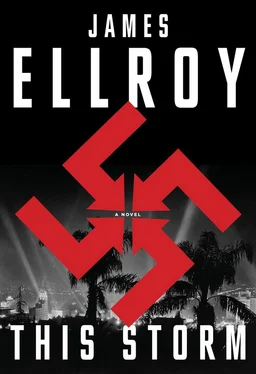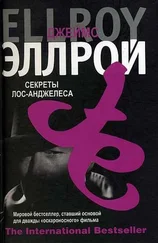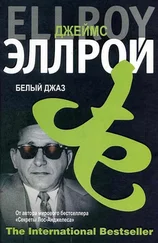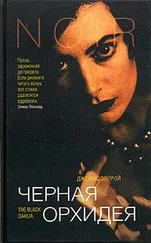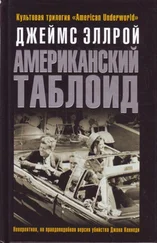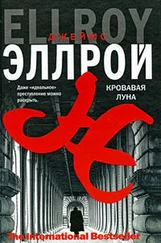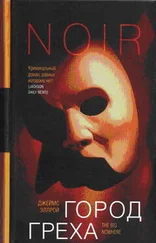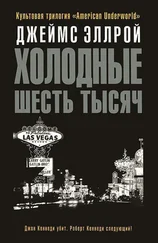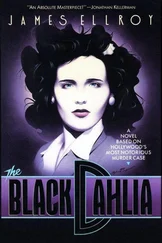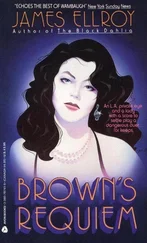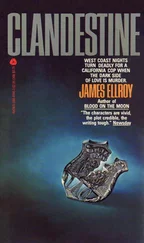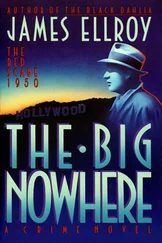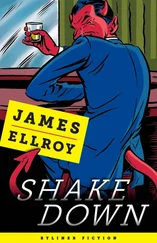The phone rang. Dudley jiggled the receiver. The switchboard patched out Mike B. and patched in Uncle Ace.
Ace gibbered. English and Chinese overlapped. He talked himself dry. He pooped out and coughed himself hoarse.
Dudley said, “Good morning, my brother.”
“My Irish brother. I have missed you.”
“Eddie Leng, my brother. Jack Horrall has appointed you judge and jury.”
Ace said, “No leads, Dudster. I make piss-poor Charlie Chan. That why white man play him in movies.”
Dudley laughed. “There’s a Jap named Donald Matsura at Lincoln Heights. Lean on him, and confirm or eliminate him. I think Tommy Glennon killed Eddie, but I could be wrong. Put this matter to rest, my brother. We should seek to avoid a tong war as we pave our way to the money.”
Phone static hit. Ace talked over it: “Fuck”/“shit”/“money, how?”
The line cleared. Dudley said, “We run wetbacks. We smuggle heroin in Army vehicles transporting Baja Japs to U.S. internment camps. There’s a sell-Japs-as-slaves scheme I’m pondering.”
More line hiss. More garbled Ace: “Fuck”/“shit”/“cocksucker.” The line cleared. Ace said, “Jap beast must die.” It was his boffo signature close.
15
(Los Angeles, 9:00 A.M., 1/3/42)
The lab smock clashed with her hair. Her sensible shoes lacked panache. Navy blue and gold, farewell.
She waltzed on the war. She served notice at the Fed Building and cabbed to Central Station. She lugged her gear by the muster room. Short cops ogled her.
Anchors aweigh.
Joan schlepped two suitcases. They contained her microscope and textbooks. She trudged the stairs. The lab was unlocked and unoccupied.
She surveyed it. She smelled luminol and gun oil. The ballistics chute leaked asbestos.
PD chemists worked sardine tight. Her desk adjoined Dr. Ashida’s. They shared bookshelves and burner plates. Joan unpacked and stashed her suitcases in a closet.
Dr. Ashida kept his desk tidy. The charred box was propped up against it. Dirt-packed jars sat three across.
They were evidence-tagged. Mineral Canyon/Griffith Park/1-1-42.
The case intrigued her. It merged human passion with elemental forces. The rain, the mud slide, a precipitant fire. Possible-probable arson. Her specific métier.
She went by the L.A. Times yesterday. She flashed her police ID and wheedled a set of page scrapbooks. They detailed the Griffith Park blaze. Santa Ana winds and scorcher heat. A firebug arrested and released. A Communist cell scrutinized. No arrests. No firm forensic determination.
She should reread and annotate the scrapbooks. She should discuss the case with Dr. Ashida. Catastrophic fire was her métier. Dr. Ashida was prissy and domineering. She should establish crime-lab parity.
Joan unscrewed a dirt jar. She sniffed the dirt and placed a small clod in a beaker. She filled a stopper with liquid ammonia and squeezed in eight drops. She added sink water and placed the beaker on a hot plate.
She brought up a flash boil. The heat induced blue coloration. She checked her organic chemistry text and found a color chart. She got a perfect match.
She studied the charred box. She memorized the wood grain and consulted her woodlot text. There’s one more perf—
Hideo Ashida walked in.
He glared. He stomped one foot. Joan preempted him.
“This batch of wood derives from late summer ’33. It was cut by the Anawalt Lumber Company. My book lists Anawalt’s key 1933 customer as Los Angeles City Parks and Recreation. The dirt I tested contains traces of a four-to-one solution of oil-diluted kerosene, which has been known to be employed as a secondary accelerant to spread already-lit fires. I talked to Dr. Layman and did some newspaper research. Accordingly, I would surmise that the killer had knowledge of an impending arson in Griffith Park, or started the overall fire himself. The box was unearthed in a canyon that was then nearly invisible from the warren of canyons at the apex of the blaze. I would surmise that the killer knew his victim would be in that nearly invisible canyon or lured him there, then killed him, boxed him, covered him in deep, soft earth, and then set the secondary fire.”
Ashida slack-jawed it. Mr. Brain was struck dumb. Bill Parker lounged right behind him. Joan smelled his dumb lime cologne.
16
(Tijuana, 2:00 P.M., 1/3/42)
He knew the look. It said YOU’RE A JAP. It vexed him in L.A. This border variant scared him.
Mexican cops. With their hate glares. With their soiled uniforms and hand-tooled gun belts. Swastikas and coiled snakes carved in.
Dudley wrangled him an Army pass. A slew of border guards perused it. They hemmed and hawed. Cars piled up behind him.
Horns blared. A man yelled, “Goddamn Jap!” Time stuttered and stalled flat.
A guard returned his pass. A guard pointed south. A guard grabbed his crotch. A guard spit on his windshield.
Ashida floored the gas. He detoured through T.J. and hit the coast road. He counted days backward. He stopped Christmas Day.
It was his first Baja visit. He joined Dudley, Mike B., and Dick C. He survived the botched dope raid. He survived the Statie jail and mucho torture. He caught the first beached-sub incursion. He questioned captured sailors and beat them with sap gloves. A fat sailor called him a swish.
He searched the sub. Dudley assisted. They found a cash stash and bought their freedom. They hog-tied the sailors and dumped them in the sub. He started the engines and got the sub out to sea.
It was explosive-rigged. Twenty-four men fired shotguns and tore out the hull. The sub detonated. The sailors burned alive.
They drove back to L.A. then. He sat in the backseat. Dudley sat beside him. Their legs brushed. He fluttered, all over.
Ashida drove south. Rain clouds gathered off the coast. He brought an evidence kit. He left notes for Elmer Jackson and Lee Blanchard.
He called off their bodyguard schifts. He fed Elmer a P.S. It laid out Joan Conville’s charred-box diagnosis. “I know about your brother. This new wrinkle’s a non sequitur. It shouldn’t bother you.”
Ashida drove south. He played the radio and caught a news broadcast. “Recent Jap aggressions” blared. He turned the radio off.
Ensenada came and went. Low clouds seeped rain. He saw Statie goons perched on a beach bluff.
He pulled over. The goons came on servile. They pointed him down a steep roadway. He skidded on hard dirt and sand.
The beachfront was right there. He brodied in tight. He hit his headlights and framed the scene.
Low tide. A beached sub. Dead sailors stacked on wood pallets. A cove entry right behind them.
Rain tarps at the ready. Two generators. Dry ice, dumped in wire-mesh buckets. It foils decomposition. We’ve got fans rigged. They’ll blow cold air on the stiffs.
And there’s Dudley. He’s dashing in his olive drabs. He’s with a Statie captain. Note the jodhpurs and peaked Nazi hat.
Ashida walked over. El Fascisto clicked his heels.
Dudley embraced him. Dudley said, “Hello, my dear friend.”
He surveyed the scene and went in close. Statie goons held spotlights. The tarps deflected light rain.
High tides eradicated drag marks. Storm tides hit the cove and wrecked his trace-element search. A Statie van backed down to the tide line. The tailgate gave him a flat place to work.
Ashida examined the bodies. He saw the facial powder burns that Dudley saw first. He studied a rock outcropping. He found three dead flashbulbs. He restudied the dead men and examined their tunics and exposed upper chests.
The goons held their spotlights tight-close. Ashida saw silencer threads and noted varied formations. He tweezer-plucked three representative batches and placed them on slides. He carried them to the tailgate and dialed his microscope tight-tight.
Читать дальше
